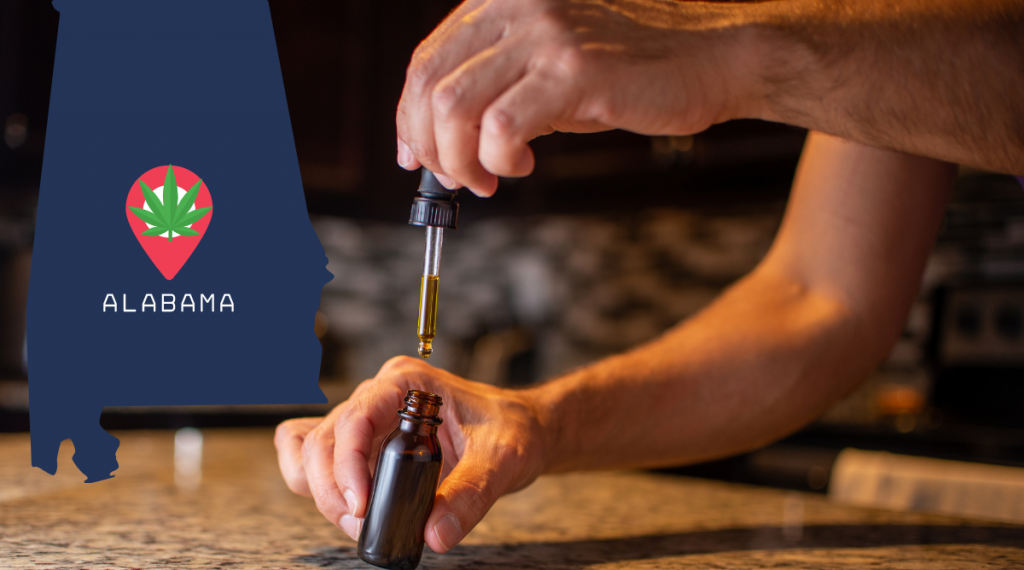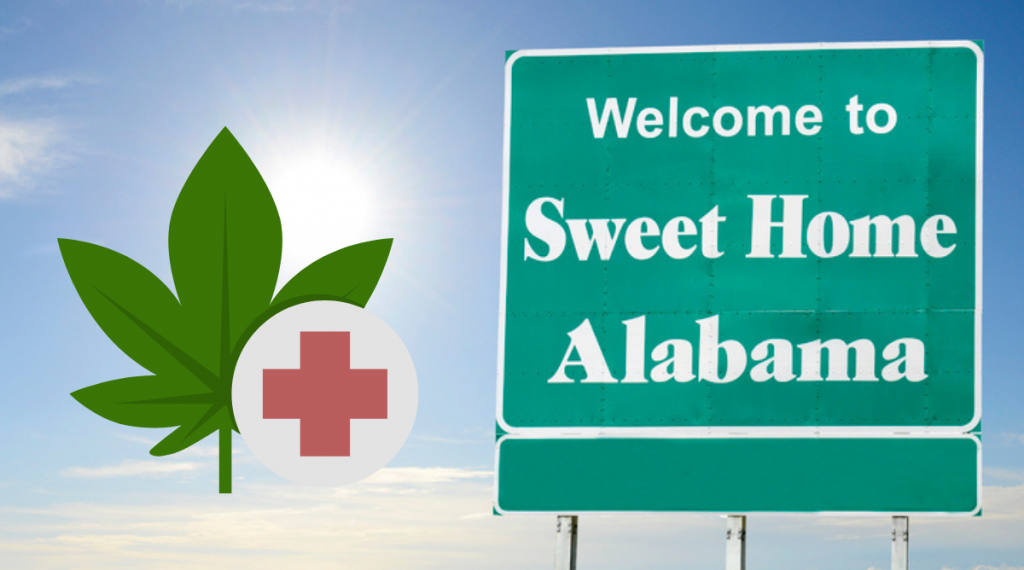
Sweet Home Alabama? It may get a little sweeter for patients who have been waiting a long time for medical marijuana. The battle to bring alternative medicine options to patients has been hard-won with incremental steps to legislation that will finally give patients another choice.
It has been difficult to move the dial on the legalization of medical marijuana in Alabama. Not only that, but the charges for personal use amount of medical cannabis are very harsh at a time when most states (even those that haven’t legalized) are decriminalizing possession of small amounts of cannabis.
To say that the medical cannabis bill passing the House of Representatives was a victory? That would be an understatement in Alabama, particularly when you know the fight waged in the state to legalize it. And to decriminalize cannabis possession and reduce legal penalties.
Thanks to lobbyists, in 2014, a bill was passed called “Carlay’s Law.” And in 2016, “Leni’s Law” was also passed. The two bills allowed for affirmative defense for the use of clinical-grade CBD oil to treat seizures under certain restrictions. It was a step in the right direction. The limit for the clinical CBD medicinal oil was 3% THC.
Alabama, like many southern states, has a harsh penalty for cannabis possession. A first-time offense of possession of a personal amount is a misdemeanor. But the penalty for the ‘crime’ is a fine of up to $6,000 and up to one year in prison. There is also a mandatory six-month driver’s license suspension. Alabama is a “smoke a joint, lose your license” state.
More attempts were made in 2019 to have cannabis possession penalties reduced. Bills sponsored by Bobby Singleton, Patricia Todd, and Dick Brewbaker passed the Alabama House but died on the floor of the Senate.
In 2015, Senator Bobby Singleton took up the cause again and proposed the “Medical Marijuana Patient Safe Access Act.” The draft of the proposed legislation identified twenty-five (25) qualifying health conditions. It passed the Alabama Senate Judiciary Committee but did not reach the Senate floor.
Senator Jabo Waggoner (head of the Senate Rules Committee) blocked the bills. Waggoner called it “bad legislation.” While High Times reviewed the bill calling it “the most impressive piece of legislation the South has seen in regards to establishing a statewide medical marijuana program.”

On Thursday, April 15th, 2021, the Alabama House of Representatives passed SB 46. The measure that would legalize medical marijuana for approximately 200,000 patients. Senator Tim Melson (R) is an anesthesiologist who spent three years researching the bill.
As with all states that move toward medical cannabis legalization, there was opposition. The House heard statements and complaints on Wednesday, April 14th. But the opposition was not enough to stop the House of Representatives from voting in favor to pass SB 46. And the bill will move forward to the Alabama Senate.
The SB 46 Bill outlines ten (10) qualifying health conditions. Patients would need to have a formal diagnosis of one or more of the health conditions in order to become a registered patient.
The medical marijuana program in Alabama would be available to people aged 19 years or older with ten qualifying health conditions that include:
Smokable marijuana is not included in the bill. Neither is vaping. That means patients will be limited to tinctures (sublingual oral uptake) and capsule doses.

There was a request to remove the conditions of premenstrual syndrome from the qualifying health conditions. Reproductive inflammation is not usually covered under a qualifying health condition. Menopause was also removed as an accepted health need. However, women with moderate to severe endometriosis may still qualify as patients with chronic pain.
The other amendment to the original draft of SB 46 was to remove the out-of-state reciprocity agreement. This means that for now, visitors who have a medical card in another state will not be able to purchase or possess medical cannabis legally.
Alabama House of Representatives also tweaked the amount of tax revenue that would be allocated to medical cannabis research from 30% down to only 15%. That aspect of the program would allow for additional health conditions to be added to the approved list of diagnoses for patient enrollment.
The cost of registration for the Alabama medical marijuana card is expected to be $65 per year. That will not include the cost of a mandatory health evaluation and referral from a practitioner. Currently, Alabama allows some telemedicine services as an emergency provision during Covid-19. It is not clear whether the state will make telemedicine a permanent healthcare service.
Alabama is very concerned about impaired driving. Under paragraph (f) (2) b. of Second 20-2A-33 of the Code of Alabama 1975, automatic driver’s license suspensions will occur for high doses. If a patient is ‘prescribed’ medical cannabis at a dose of 75 mg of THC, it will result in a mandatory suspension of the patient’s driver’s license.
Typically, strong doses are only provided for end-of-life or compassionate care for patients with terminal illnesses. Who is unlikely to be well enough to drive a vehicle anyhow. But the provision is there to help curb risks to road safety. Whether the automatic revocation of the driver’s license is constitutional, however, will likely be challenged.
Featured Image: Canva
No Information on MarijuanaDoctors.Com should be used to diagnose, treat, prevent or cure any disease or condition. You can view our Full Disclaimer here.